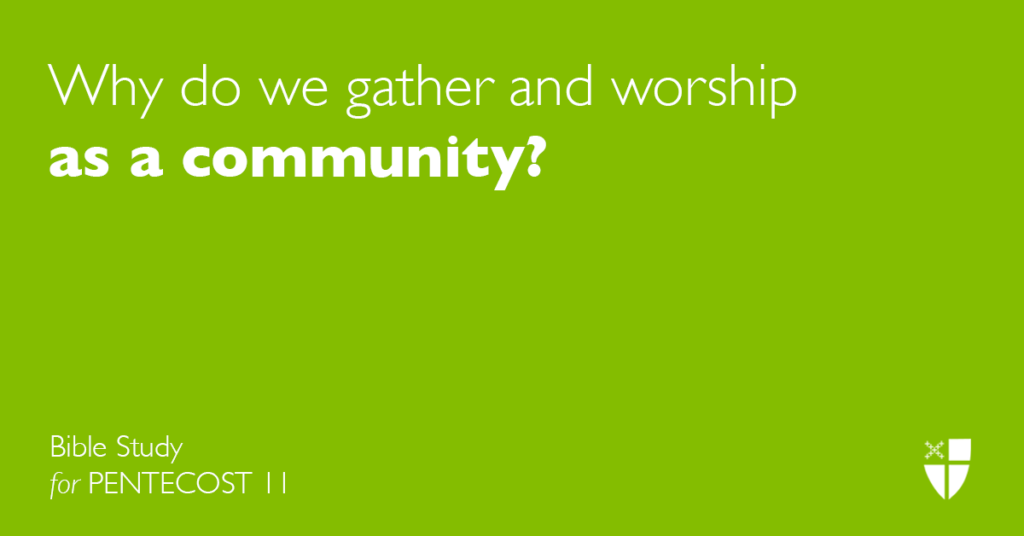Bible Study: Proper 14 (B) – 2021
August 08, 2021
RCL: 2 Samuel 18:5-9, 15, 31-33; Psalm 130; Ephesians 4:25-5:2; John 6:35, 41-51

2 Samuel 18:5-9, 31-33
David’s kingdom is in rebellion and his troops encounter the rebels in the forest near Ephraim. David gave orders that his rebel son, Absalom, be dealt with “gently.” David’s forces are victorious, but in the course of battle, Absalom is killed as he rides through the forest. A Cushite messenger brings the news to David and the king begins to weep and mourn the loss of his son. This is one of the tragic stories of the Hebrew scriptures – for though the kingdom is preserved through military might, King David is not immune to the painful circumstances of its preservation.
- How do we discover God’s presence working through the painful circumstances of our lives?
Psalm 130
When we are speechless during times of sorrow and despair, Psalm 130 provides words to express our grief and hope in God’s merciful redemption. In prayerfully reciting the psalm, our hope is to experience God’s forgiveness, mercy, and redemption in the midst of pain and suffering. Psalm 130 is one of the choices for use during the burial service in the 1979 Book of Common Prayer.
- Describe and discuss the varied forms of human reactions to pain and suffering.
- Are we comforted by the words of the psalms, especially Psalm 130?
Ephesians 4:25-5:2
Paul, in this selection from Ephesians, advises the believing community to live peacefully in communion with one another. They are not to be angry – or at least they are not to remain angry overnight! Paul goes on to advise all the things that they are not to do; to be wrathful, bitter, or slanderous. But Paul does not conclude on a negative note. He then tells them what they are to do: “be kind to one another, tenderhearted, forgiving” (v. 32). The reading ends with Paul encouraging the community to journey in love as Christ loved us and to let their lives be a reflection of God. Ephesians 5:2 is an offertory sentence option in the 1979 Book of Common Prayer.
- Is it important to be an active member of a Christian community?
- Why do we gather and worship as a community?
- How well do we follow Paul’s recommendations for communal living?
John 6:35, 41-51
This gospel passage from John centers around one sign and one issue in the gospel: John’s account of the feeding of the five thousand and Jesus’ special relationship with the Father. First is Jesus’ special relationship with the Father. If one desires to be close to Jesus, then one must be “drawn” by the Father. Jesus continues, describing how those who listen and hear God come to Jesus. Jesus tells the people that no one has seen the Father except the One who has come from the Father. Later in the gospel, Jesus will tell Philip and the other disciples that to see him (Jesus) is to have seen the Father (14:9).
Second, after he speaks of the Father, Jesus makes the profound statement that he is the bread of life and connects that point to the Exodus story. Manna, in the Exodus wilderness journey, provides necessary food for the survival of God’s people. Jesus proclaims that those who ate the manna died and those who partake of the bread of life that is given from heaven will have eternal life.
- How do you react to the rather abrupt ending of this gospel passage?
- Does this passage make you want to hear more about Jesus’ relationship with the Father and the bread of life?
- As a Christian, how might you explain Jesus’ special relationship with the Father and his being the Bread of Life?
¡No olvide suscribirse al podcast Sermons That Work para escuchar este sermón y más en su aplicación de podcasting favorita! Las grabaciones se publican el jueves antes de cada fecha litúrgica.


